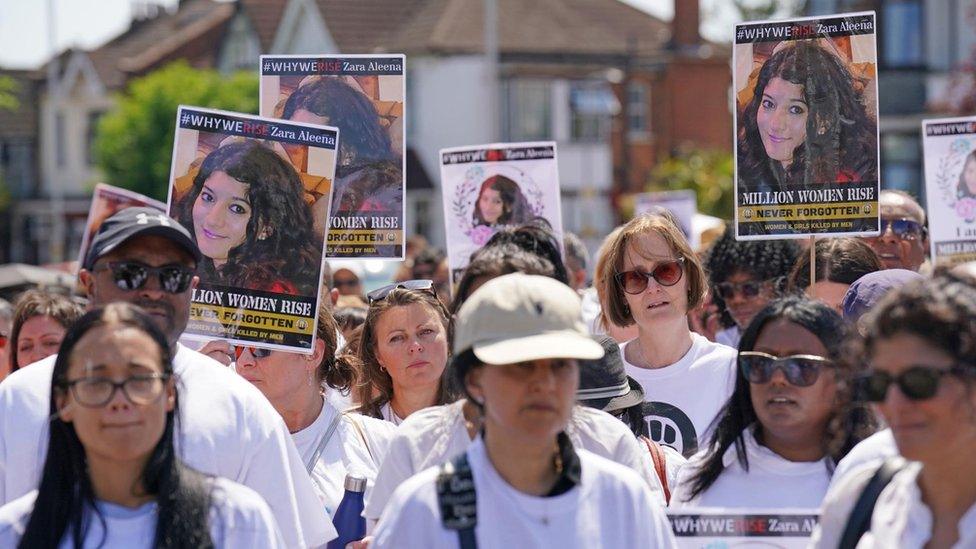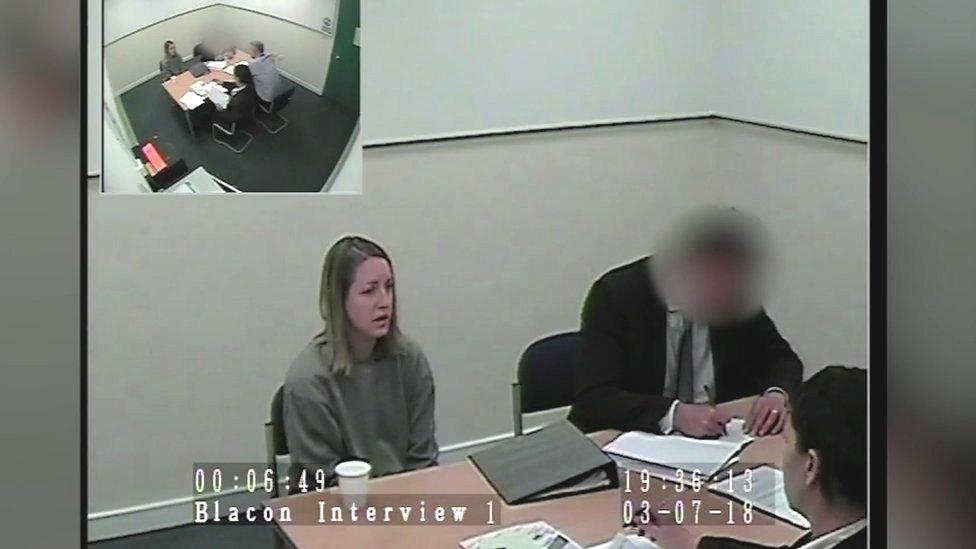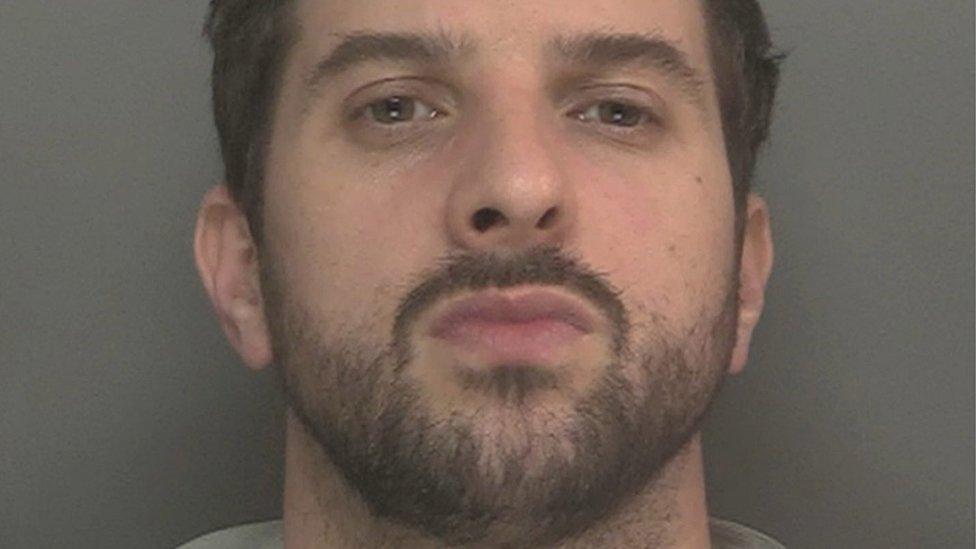Plan to force offenders into dock for sentencing could be deterrent - families
- Published
Watch: Offenders shouldn't be "dragged to the dock" - victim's aunt
Plans to give judges more powers to force criminals to attend sentencing could act as a deterrent, families of victims of serious offenders have said.
"Nobody wants to stand in that box, facing a judge telling them they are a despicable character," said Farah Naz, the aunt of murdered Zara Aleena.
The proposed law change for England and Wales comes after baby killer Lucy Letby refused to appear for sentencing.
But critics said it was "sheer madness" and would make no difference.
Under the new rules, judges will be able to order an offender to attend a sentencing hearing and make it "clear in law" that reasonable force can be used.
Those who refuse could face an extra two years in prison.
This would apply in cases where the maximum sentence is life imprisonment, including serious sexual or violent crimes like murder, rape, and grievous bodily harm with intent, although it would not make a difference for someone like Letby who has been given a whole-life order and will never be released.
'This is a trend'
Ms Naz said facing the judge was "part of the punishment" when it came to sentencing.
"Punishment is a deterrent," she told BBC Breakfast. "So I think this new ruling gives a strong message to offenders."
Ms Naz's niece Zara Aleena was murdered by Jordan McSweeney in Ilford, east London, in June 2022. McSweeney refused to appear for sentencing.
"Let's not forget that offenders have a culture, they talk to one another, and this recent spate in offenders not attending the courtroom is… a trend.
"So we need to put a stop to the trend. We need to say, 'actually you will be held to account - you will be put in the box, and you will be told by the law, which is more powerful than you,'" she said.
However, she also acknowledged that forcing those convicted to come to court would be difficult.
"We have to be better than [the criminals], so we can't drag them in. But we can use some leverage, and that would be even for life prisoners. Life prisoners have quite a comfortable life in prison - there are privileges that could be used [as leverage].
"We've got to use persuasion rather than force. We've got to compel rather than drag," she added.
Jebina Islam, the sister of murder victim Sabina Nessa,told the BBC she was "delighted" to see victims and their families being "put first".
Ms Nessa was murdered in September 2021 by Koci Selamaj as she walked through a park in south-east London. Selamaj refused to appear in court for his life sentence.
"We've worked hard for this and it's about time that we've seen this change happen," she told BBC Radio 5 live.
She said her family felt angry when Ms Nessa's killer refused to stand in the dock for sentencing.
"How is this fair? How is this allowed? He murdered my sister, our sister," she said.
Cheryl Korbel, whose nine-year-old daughter Olivia was killed by Thomas Cashman - who also refused to appear in court - said she hoped her daughter was "proud of what we've done".
Lucy Letby, who earlier this month was given a whole life sentence for murdering seven babies and attempting to kill six more, refused to appear in court for her sentencing. The mother of two of her victims called this "just one final act of wickedness from a coward".
Other criminals who have refused to enter the dock include Zahid Younis, who murdered Henriett Szucs and Mihrican Mustafa in London and kept their bodies in a freezer, and Hashem Abedi, who helped his brother murder 22 people in the Manchester Arena bombing in 2017.
Judges can make an order for a defendant to appear, and refusing the judge's order can result in prosecution under the Contempt of Court Act. But Ministry of Justice officials say they are only aware of one example in a decade of a judge making such an order.
Shadow home secretary Yvette Cooper said a law change would "make it easier" for judges to ensure those found guilty appear in court.
'Coward's way out'
Prime Minister Rishi Sunak said convicted criminals "cannot and should not be allowed to take the coward's way out".
However, the father of a murdered police officer said that while it was important to put power "back in the hands" of victims' families, a law change would be difficult to enforce.
Former prison officer Bryn Hughes' daughter PC Nicola Hughes was killed in 2012 alongside a colleague in a gun and grenade ambush while on duty in Greater Manchester.
He said he had witnessed the issue from "both sides of the courtroom".
"On being the father of someone who was murdered and being in court, and a former prison officer who has actually restrained someone into court. It is difficult," he said.
He said it could be very difficult to force people up the often narrow steps from the cells into courtrooms, and he had seen the behaviour of prisoners forced into courtrooms.
"Foul abuse towards the family, abused the court, turned their back, kicked off, fought, spat, bitten people," he said.
He added it was important not to give offenders the power to "put on another show" in the court room.

The family of Zara Aleena are among those campaigning for a change in the law to ensure convicted criminals appear in court
Thomas Leonard Ross KC, a defence lawyer, was critical of the proposed measures, calling them "sheer madness" that would have no impact.
He said judges already had powers to compel those convicted to come to court under the Contempt of Court Act.
"The proposal seems to be that the worst paid members of staff - namely the people who work for the security firm - have to start rolling about with violent criminals," he told BBC Radio 5 live.
He said officials should speak with victims' families and "explain to them that although they want this, they can't have it, because in practical terms it's impossible to have".
Related topics
- Published21 August 2023

- Published22 August 2023

- Published4 April 2023
